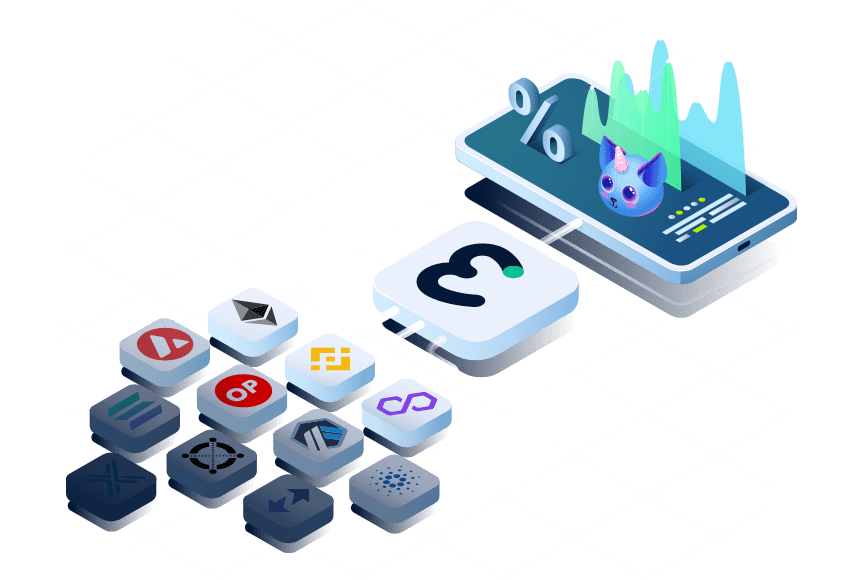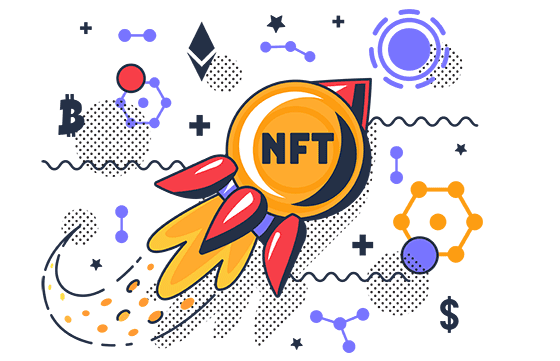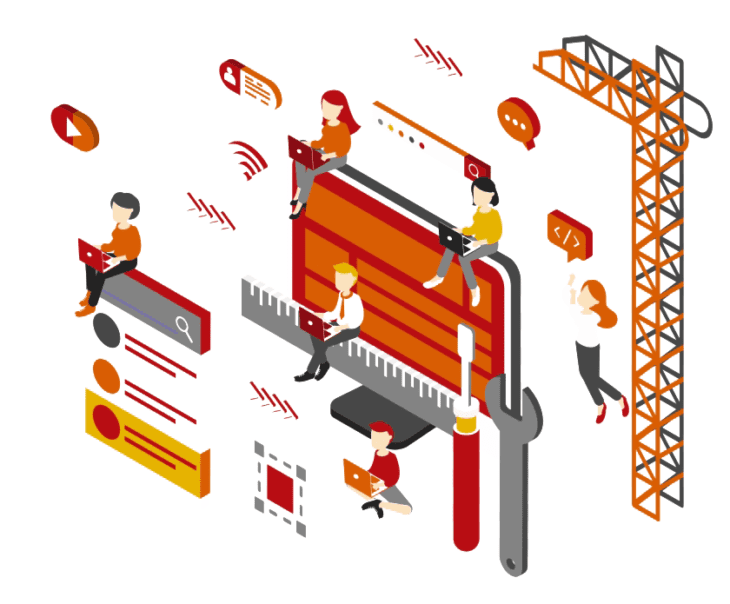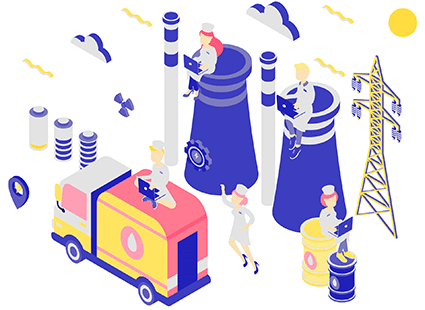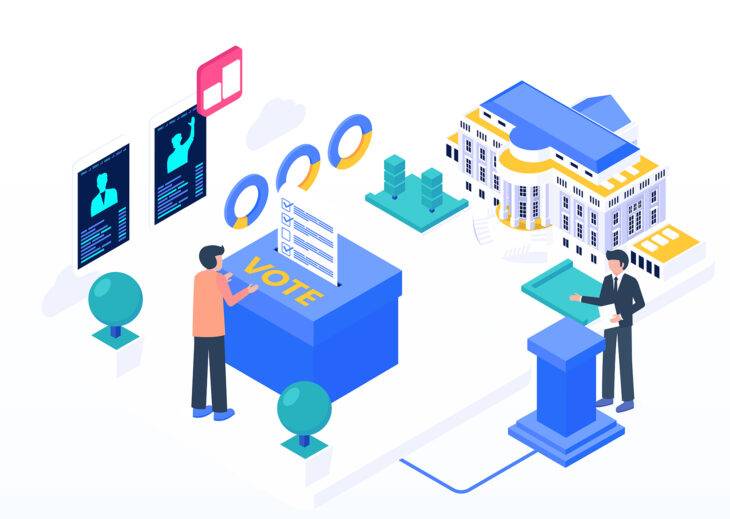There’s a catchphrase that tech, crypto, and venture-capital folks have recently been obsessed with. Conversations are now littered with it, and you’re not serious about the future until you include it in your Twitter bio: Web3.
It’s a catch-all word for various proposals to cut out the huge middlemen on the Internet. Navigating the web in this new age no longer entails signing into sites like Facebook, Google, or Twitter.
Consider this: Web 1.0 refers to the early days of the Internet in the 1990s. The web was considered as a method to democratize access to knowledge, but there were few good ways to navigate it beyond visiting a friend’s GeoCities website. It was a little unorganized and overwhelming.
Then, beginning in the mid-2000s, there was Web 2.0. Platforms such as Google, Amazon, Facebook, and Twitter arose to bring order to the Internet by making it simple to connect and transact online. According to critics, such corporations accumulated much too much influence over time.
The goal of Web3 is to reclaim some of the power.
There is a small group of companies that control everything, and then there are us, who freely contribute to it with our private data to the success and profitability of various platforms. The problem is, we make no profits from our contribution.
The solution is Web3, an Internet iteration in which new search engines, social networks, and markets emerge with no corporate bosses. Instead, they are decentralized, based on blockchain technology, which currently underpins Bitcoin and other cryptocurrencies. Consider it a kind of accounting in which several computers simultaneously host data that is searchable by everyone. Users rather than a company run it. People are rewarded “tokens” for their participation. The tokens may be used to vote on choices and potentially accumulate real-world value.
In a Web3 future, users manage their own data and use a single customized account to go from social media to email to commerce, producing a public record of all of that activity on the blockchain.
“To the typical individual, it does seem like voodoo,” said Olga Mack, entrepreneur and blockchain instructor at the University of California, Berkeley. “But, when you touch a button to turn on the lights, do you know how the power is generated? You don’t have to grasp how electricity works to appreciate the advantages. The blockchain is no exception.”
Right now, the thought of the whole Internet being reinvented may seem like some distant digital paradise. However, Web3 is sparking new debates – and generating a lot of new money, notably from crypto investors.
‘At first perplexing,’ but Web3 is becoming more popular, and IT businesses are taking notice. The advent of NFTs, or non-fungible tokens, which are digital collectibles and other online files that can be purchased and sold with cryptocurrency, has aided the Web3 movement. Then there are the PR stunts. Recently, a group of crypto aficionados got together to try to buy a copy of the United States Constitution using digital money. They banded together under the guise of ConstitutionDAO. (A DAO is an abbreviation for a decentralized autonomous organization, the term for an online community of crypto enthusiasts who come together in a group regulated by blockchains and tokens.)
Attempting to describe Web3 may be frustrating since it’s a loosely defined phrase that takes on a slightly different form depending on who defines it, but that’s the case with all new technological frontiers.
Every new online innovation is perplexing at first. Web3 has long been regarded as a theoretical grand vision by technologists and cryptographers. However, the movement for a blockchain-powered future has dominated tech conferences and social media discourse in some circles in recent years. It’s even compelled large IT corporations to form Web3 teams.
And this has added irony to the evolution of Web3: enthusiasts hope that Web3 will mean that communicating with friends, sharing photos, and online purchasing will no longer be synonymous with Big Tech companies but will be done through a plethora of small competing services on the blockchain — where, for example, every time you share a photo, you earn a token reward for your contribution, giving you an ownership stake in the platform and a way to cash in one day.
In principle, this also means avoiding fees, regulations, and restrictions imposed by IT corporations. Nonetheless, large digital platforms are also getting on the bandwagon.
“It implies that all of the wealth gained may be shared amongst more people, rather not simply the company owners, investors, and workers,” said Esther Crawford, a senior project manager at Twitter.
Crawford said Twitter is looking for ways to incorporate Web3 ideas into the social network, such as the ability to join the social network and tweet from a cryptocurrency account rather than a Twitter account one day. She views the future differently: she doesn’t see a crypto-version of Twitter as a viable replacement for Twitter. Instead, Twitter is adding Web3 capability to its standard Twitter service.
“For a long time, Web3 was quite theoretical,” she said. “However, there is now a burst of impetus to be built.”
Will Web3 become the new norm?
According to experts, under the best-case scenario for Web3 fans, the technology would coexist with, rather than completely replace, Web 2.0.
In other words, blockchain-based social networks, transactions, and enterprises may and will expand and prosper in the future years. However, according to technology experts, eliminating Facebook, Twitter, or Google seems unlikely. However, in order to remain relevant, Web2 firms will incorporate Web3 concepts into their offerings.
Soon people will be able to carry their data and history of online interactions with them wherever they go on the Internet, rather than being limited to single web platforms—what some refer to as the “walled gardens” of giant tech corporations.
It will be a totally different experience than what we’re accustomed to. However, such unrestricted freedom might have negative consequences for certain people. There’s nothing inhibiting individuals from establishing whatever community they want. It can’t stop someone from building something hellacious.
Decentralized social networks have proven tempting to white supremacists and other far-right organizations. Still, Sam Williams, creator of Arweave, a blockchain-based initiative for online data storage, said he trusts Web3 communities to decide what speech is tolerated online.
Overall, he believes that communal voting on norms of participation will be superior to what users now experience on major social media networks. “If we continue in the existing paradigm, we will go further and farther towards a domain where a tiny handful of firms managed by a small number of people run our experiences in cyberspace,” he stated. “In such scenario, Big Tech’s issues are magnified.”
Another concern is, of course, government supervision. Blockchain-based tokens are now in regulatory limbo, but that may soon change as the Biden administration starts the process of establishing new industry guidelines.
How does Web3 tie in with the other vision of the Internet’s future – the metaverse?
Facebook recently renamed itself Meta and said it would aim to develop the “metaverse,” a digital future where everyone lives, interacts, and works together in virtual reality.
Among the company’s declared principles is “strong interoperability,” which means that customers may move their accounts or avatars from service to service or site to site without having to check in to accounts maintained by different corporations every time they visit a new site. This is also one of Web3’s principles.
True believers, however, argue that Facebook has no place in a Web3 future, no matter how hard the social network attempts to be a part of the next generation of the Internet. Facebook will always be encouraged to enhance Facebook, which is not how cyberspace should be managed.
What are the odds that Web3 is merely a hyped-up fantasy?
It doesn’t take long to locate Web3 detractors. James Grimmelmann, a Cornell University law and technology professor, has expressed his reservations. “Web3 is vaporware,” Grimmelmann stated, referring to a product that is announced but never delivered.
“It’s a promised future internet that cures everything people don’t like about the existing internet, even when it’s contradictory.”
He claims that if one of the motivations is to avoid handing over personal data to Big Tech corporations, blockchain is not the answer since it would make even more data public.
“It doesn’t make any sense,” he remarked. “According to the view, the issue with the Internet is too many centralized middlemen. Instead of having several apps and websites, we’ll put everything on blockchains, which will keep everything in one location.”
Grimmelmann sees Web3 as engineers resurrecting the utopian mentality of the Internet’s early days — “everyone may freely utilize the information superhighway!” — that was long since supplanted by tech businesses.
He claims that the growth of the Internet has always been a tug of war between fragmentation and centralization. When it swings too far in one way, a backlash attempts to pull it in the other direction.
“Blockchains are exciting because they tackle certain challenging issues in novel ways,” he remarked. “They’re probably going to wind up in the toolbox from which the future internet is created, but it doesn’t imply the internet will be built around them.”
However, many individuals who became wealthy during the epidemic by investing in cryptocurrencies are seeking anything to invest in other than NFTs of “bored apes” who are members of a cartoon “yacht club.”
Right now, he added, Web3, although primarily theoretical, is the thing.
“There are a lot of individuals with money to invest,” he remarked. “And they need some vision to throw money at.”
Let’s wait and see. The future will decide.
